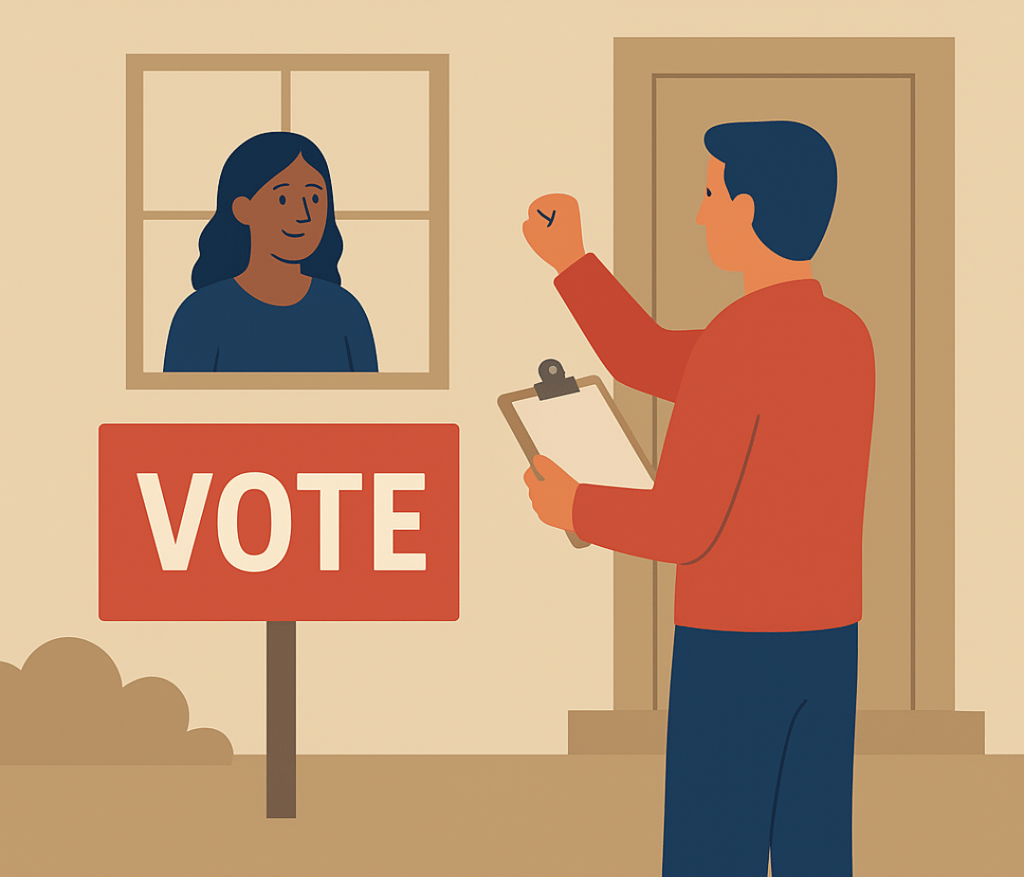Why Every Campaign Needs a Field Program
Trends in voter contact shift often, but a dedicated field program will always be the best way to reach voters.
Celeste Wilson
3 min read


Campaigns are often dazzled by digital ads, slick mailers, or big fundraising hauls. But here’s the truth: elections are still won and lost on the ground. A strong field program — one that prioritizes direct voter contact — is the backbone of any winning campaign. In a recent congressional race managed by CR Strategies, we saw a field program swing election results at the door and at the ballot box by a whopping 11%. Whether you’re running for city council in California or Congress in Washington, the candidate who shows up at voters’ doors is the candidate who earns their trust.
So why do so many campaigns still treat field as an afterthought?
What a Field Program Actually Is
A campaign field program is the systematic plan for direct voter contact. It’s the door knocks, phone calls, text messages, and one-on-one conversations that connect campaigns directly to the people they need to win.
A good field program is not just about visibility (yard signs, social media posts, or rallies). It’s about conversations that move voters; identifying supporters, persuading undecideds, and mobilizing people to actually cast their ballot.
In California especially, where turnout can vary dramatically between local races, a field program often makes the difference between winning and losing.
Why Field Wins Races
Study after study shows that direct voter contact is the single most effective campaign tactic. For example:
A personal door knock can increase a voter’s likelihood of turning out by 8–10%.
Targeted phone calls have been shown to boost turnout by 3–5%.
Text messages with personalized content increase voter engagement and turnout, particularly among younger voters.
In close races (with most local campaigns are decided by just a few hundred votes) those numbers are decisive.
Field also builds something no digital ad can: relationships. When a volunteer shows up on a voter’s doorstep, it humanizes the campaign and builds credibility that money can’t buy.
Common Mistakes Campaigns Make
Too many campaigns, especially at the local level, make the same errors when it comes to field:
Starting too late. You can’t build a ground game in October and expect it to deliver. Field takes months of planning, training, and execution.
Relying only on digital. Social media ads may raise awareness, but they don’t guarantee turnout. Direct voter contact does.
Neglecting volunteer management. Volunteers are the lifeblood of field. Without clear training and accountability, even the best data won’t matter.
Treating field as optional. Down-ballot candidates often think they can skip it. But in low-turnout elections, field is not optional, it’s everything.
What a Good Field Program Looks Like
So what does a winning field operation actually require?
A dedicated field lead. Whether it’s a full-time field director or a committed volunteer coordinator, someone has to own the program.
Clear voter contact goals. Campaigns should set measurable targets: how many doors to knock, how many calls to make, how many texts to send each week.
Integration with voter data. A good field program isn’t blind. Using tools like VAN, PDI, or other voter files allows campaigns to target the right voters and track progress.
Consistent accountability. Daily reporting, weekly check-ins, and progress tracking are essential to keep the field program on pace.
In short: a good field program is disciplined, data-driven, and relentless.
The Ground Game Advantage
Field programs aren’t glamorous. They don’t generate splashy headlines or flashy press clips. But they deliver results. Campaigns that invest early in grassroots voter contact consistently outperform those that rely solely on mail or digital ads.
At a time when voters are more skeptical than ever, nothing replaces a face-to-face conversation. A strong field program shows voters that you are willing to put in the work, that you value their voice, and that your campaign is grounded in the community.
Closing
If you’re serious about winning, you need more than a message — you need a ground game. At CR Strategies, we specialize in building affordable, effective field programs that help candidates connect with voters, maximize turnout, and win tough races.
Don’t wait until the fall to start knocking doors. Your campaign’s future depends on it.
CR Strategies
Campaign strategies for impactful causes and candidates.
Contact us
Reach Out today
celeste@crstrategies.co
530-588-4984
© 2025. All rights reserved.
